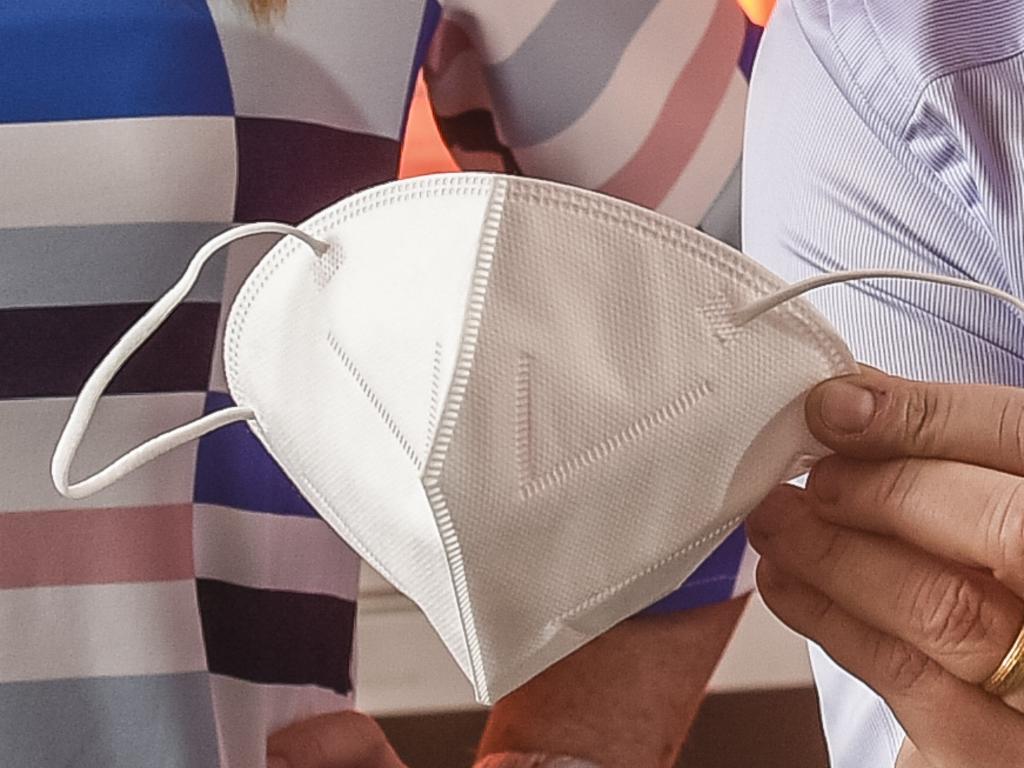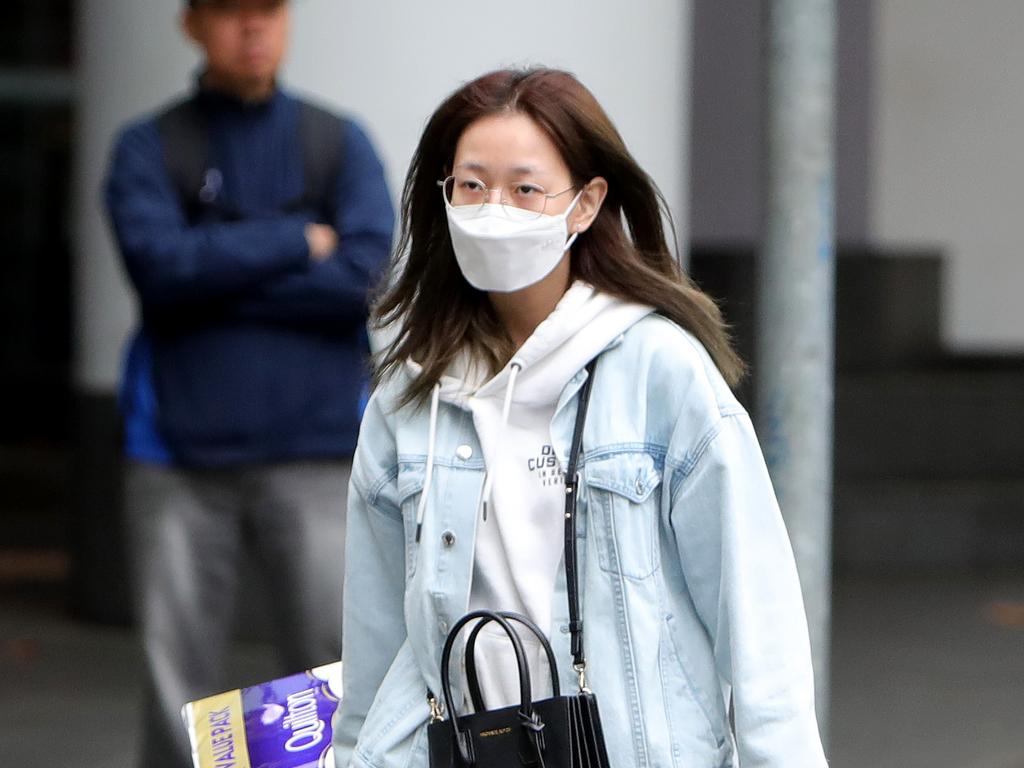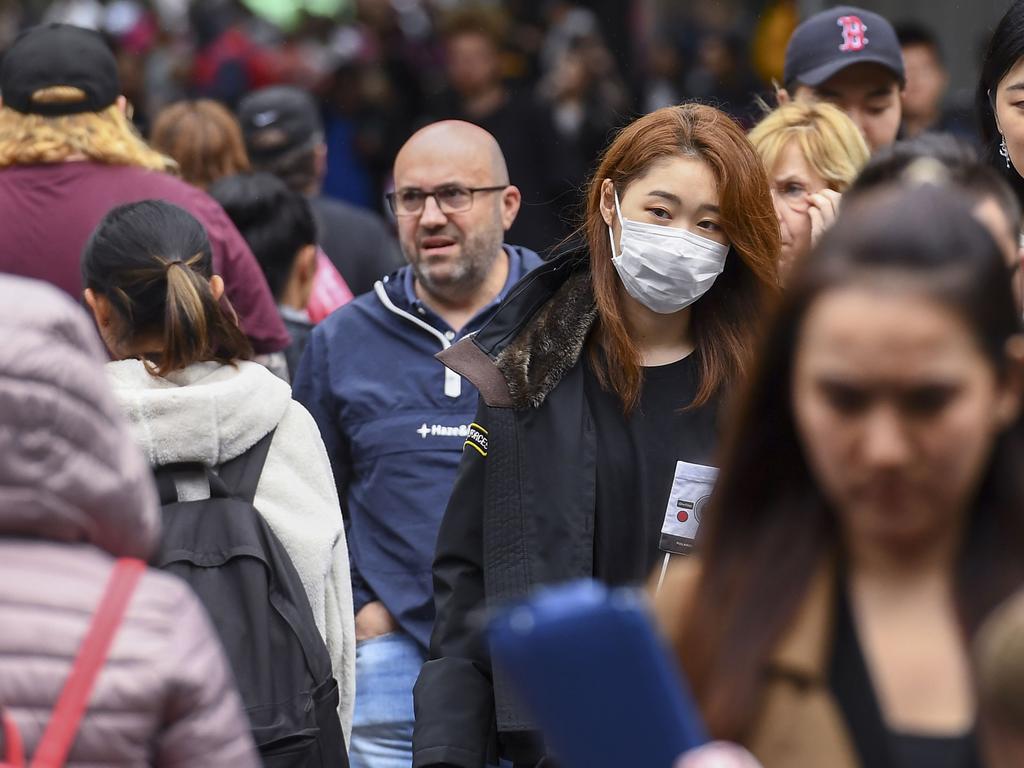Coronavirus: Masks could be the key to controlling COVID-19 so why aren't Australians being asked to do this?
If Australians want life to go back to normal, experts say one measure could help control the spread of the coronavirus, so why aren’t we being asked to do this?
As Australia continues to open up following the coronavirus lockdown, some are questioning why the use of face masks is not being encouraged.
The use of masks is under discussion again as larger numbers of Australians are allowed to gather, businesses open up, public transport begins to take more passengers and politicians promise sports stadiums could soon re-open.
ABC journalist Norman Swan said there seemed to be a lot of contradictions around what people could do, such as that it wasn’t OK to attend a protest but footy matches were safe.
While he said the risk of being infected outdoors was relatively low, at a football game you would have a lot of shouting and yelling that could help spread the virus.
He said social distancing would help reduce the risk but this could be even lower if people wore masks.
“I think a lot of the contradictions at the moment are because state and federal governments seem to be reserved on insisting on the use of masks,” he said.
He said that places like New South Wales and Victoria were finding it difficult to eradicate the virus because of asymptomatic spread, which means people without symptoms can infect others.
“Rather than going back to lockdown, if we went with a period of insisting on mask-wearing for about a month, you might actually see those sporadic community-spread cases disappearing from NSW and Victoria,” Dr Swan said.

WHAT THE GOVERNMENT SAYS
So far state governments are not encouraging Australians to wear masks, unlike other places like Singapore, where you will get fined for not wearing a mask.
In April, the National Cabinet noted that advice from the Australian Health Protection Principal Committee (AHPPC) was that the wearing of face masks by the general population was not recommended at the time.
“Should significant community transmission in Australia occur, mask wearing in public is an available option,” a statement from Prime Minister Scott Morrison released after the meeting stated.
However, Australia’s Chief Medical Officer, Professor Brendan Murphy said the AHPPC also recognised that in crowded public transport situations, some people may choose to wear masks.
“We acknowledge that is not an unreasonable thing to do, not that we are recommending it in the general community in Australia at the moment because of the low case numbers,” he told reporters in April.
“But if people do choose to wear masks, they need to be careful that they are not a complete protection and they need to be worn very carefully.”

MASKS ARE EFFECTIVE
While much of the discussion around the use of face masks has focused on how it’s not effective at blocking the coronavirus, some experts believe this misses the point.
University of San Francisco data scientist Jeremy Howard is one of a number of scientists that reviewed the science around the use of face masks and is now calling on US authorities to require masks be worn in all public places.
Mr Howard reviewed the evidence around the use of masks and explained his findings, which have not been peer reviewed, in an article on The Conversation. He said experiments had shown cloth masks were effective at blocking droplets, which is how COVID-19 is largely spread.
He believes the reluctance of western countries to embrace the use of masks is due to a number of factors.
While many have been quick to point out that masks are not effective at preventing people from getting infected, he believes other benefits of wearing a mask were ignored because of this perspective.
Mr Howard said early research that showed masks weren’t effective, focused on how good masks at were at protecting the wearer from becoming infected, which is very important for health workers.
But other experiments have shown masks are good at stopping people — who are already infected — from spreading the virus, which is important for a disease like COVID-19 that can be spread before people get symptoms.
“There are numerous studies that suggest if 80 per cent of people wear a mask in public, then COVID-19 transmission could be halted,” he wrote.
Another complicating factor was the shortage of medical masks around the world.
“Many policymakers were concerned that recommending face coverings for the public would lead to people hoarding medical masks,’ Mr Howard wrote.
“This led to seemingly contradictory guidance where the CDC (Centres for Disease and Control in the US) said there was no reason for the public to wear masks but that masks needed to be saved for medical workers.
“The CDC has now clarified its stance and recommends the public use of homemade masks while saving higher-grade masks for medical professionals.”
His verdict? People should be wearing cloth masks to stop the spread of the coronavirus.
“Until a vaccine or a cure for COVID-19 is discovered, cloth face masks might be the most important tool we currently have to fight the pandemic,” he wrote.
“Given all of the laboratory and epidemiological evidence, the low cost of wearing masks – which can be made at home with no tools – and the potential to slow COVID-19 transmission with widescale use, policymakers should ensure that everyone wears a mask in public.”

BUT IS AUSTRALIA DIFFERENT?
Australia did struggle early on with its stockpile of medical masks and this may have influenced its decision not to require people to wear masks.
However, unlike other countries such as the US, Australia also does not have widespread community transmission of the coronavirus.
Officially, the World Health Organisation recommends the use of medical masks among some groups including health workers, anyone with symptoms of the virus, at-risk people, those aged over 60 years, those with underlying health conditions and those caring for confirmed cases in private homes.
It does not recommend the use of cloth masks unless there is widespread community transmission.
While this is not the case in Australia, the virus is very difficult to eradicate and there could be more outbreaks. After two weeks of recording no community transmissions, NSW recently confirmed three positive cases.
Wearing a mask could become more important as businesses open up and if people want to be able to gather in places like stadiums.
“New South Wales and Victoria are really struggling (to eradicate community transmission) and they’re struggling because this virus does not just behave in 14-day cycles,” Dr Swan told ABC.
“(It’s) very difficult to eradicate when it’s asymptomatic spread.
“And I’m sorry – I’m sounding like a broken record, but you probably could start to reduce that risk even further with a period of mask-wearing.
“Rather than going back to lockdown, if we went with a period of insisting on mask-wearing for about a month, you might actually see those sporadic community-spread cases disappearing from New South Wales and Victoria.
“But I don’t see much prospect of them disappearing at the moment. It’s just a really difficult task and this is what we’re going to see for some time to come.”




